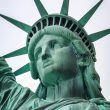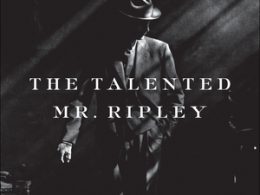The American West is a region of vast and untamed wilderness, where the rugged landscape has inspired countless tales of adventure, romance, and survival. From cowboys to frontiersmen, from Native Americans to pioneers, the West has captured the imagination of writers for generations. But what makes Western literature so unique? In this blog post, we’ll explore the literary landscape of the American West and discover how it reflects themes of masculinity and femininity, as well as our deep connection to nature. So saddle up your horse and get ready for a journey through some of America’s most iconic stories!
The Landscape of the American West
The landscape of the American West is as diverse and awe-inspiring as it is vast. From towering mountains to arid deserts, from winding rivers to endless plains, the natural beauty of this region has captivated people for centuries.
The Rocky Mountains rise majestically above the Great Plains, their snow-capped peaks a symbol of strength and resilience. The Grand Canyon cuts through the desert like a gaping wound in the earth’s surface, revealing layer upon layer of geological history.
The Pacific Northwest boasts lush forests that seem to stretch on forever, while California’s rugged coastline offers stunning vistas at every turn. And let’s not forget about Yellowstone National Park – home to geysers, hot springs and an abundance of wildlife.
But beyond its physical attributes, the West also represents something deeper – a sense of freedom and adventure that can only be found by exploring its wild landscapes. It’s no wonder so many writers have been drawn to this part of America over the years!
The Literary Landscape of the American West
The American West has long been a source of inspiration for writers, poets and storytellers. From the wild landscapes to the rugged individualism of its inhabitants, it is a place that captures the imagination and begs to be explored in literature.
One of the most striking features of Western literature is its diversity. It encompasses everything from classic tales of cowboys and Indians to contemporary works exploring issues such as environmentalism and social justice. Some authors focus on historical events like the gold rush or pioneer days, while others delve into more personal themes such as identity, family ties, and love.
What unites these disparate works is their deep connection with the land itself. The vast expanses of desert, mountains, prairie and forest provide a backdrop against which human struggles are played out. Many authors use nature to amplify emotions; describing how characters feel dwarfed by towering cliffs or invigorated by rushing rivers.
Western Literature also often deals head-on with issues related to race relations – particularly between white settlers/colonizers and indigenous peoples already living in North America before European colonization began). The complexity that arises when two distinct cultures meet can create powerful literary tension.
Western literature is an incredibly rich tapestry woven from many threads – cultural heritage/history/myths/legends/lived experiences/folklore etc.. And yet despite this diversity there remains something quintessentially “western” about it all: an appreciation for wide-open spaces along with independence/self-determination coupled with exploration/adventure-seeking drives that lead us further into uncharted territories both within ourselves as individuals & collectively across our society/culture at large!
Themes in Western Literature
Western literature has long been known for its exploration of various themes that are often rooted in the harsh and rugged landscape of the American West. One prominent theme is the struggle between civilization and wilderness, where characters find themselves torn between embracing their wild nature or conforming to societal expectations.
Another popular theme in Western literature is heroism, with many tales featuring a lone hero who must face insurmountable odds in order to protect his community or achieve personal redemption. This archetype embodies bravery, self-sacrifice, and determination against all odds.
The concept of justice also features heavily in Western literature as characters grapple with moral dilemmas such as revenge versus forgiveness or lawfulness versus vigilante justice. These conflicts often reveal deeper philosophical questions about what it means to be just and righteous within society.
Love and romance are not absent from Western literature either, though they may take on a more rugged tone than traditional love stories. Characters navigate complicated relationships amidst the challenges posed by living in an unforgiving terrain.
Themes in Western literature provide insight into both individual struggles and broader societal issues while celebrating the enduring spirit of those who dared to carve out a life on the frontier.
Western Masculinity
Western Masculinity is a theme that has been explored extensively in literature set in the American West. This type of masculinity is often associated with rugged individualism and toughness, with men being depicted as strong, brave and independent.
One common portrayal of Western Masculinity is the cowboy figure. Cowboys are typically seen as stoic figures who lead solitary lives on horseback while working to tame the land. They represent a sort of “lone wolf” archetype that values physical strength over emotional intelligence.
However, this stereotype of Western Masculinity has also been criticized for promoting toxic masculinity, where violence and aggression are normalized. Some authors have sought to challenge these stereotypes by portraying male characters who exhibit vulnerability or sensitivity without compromising their sense of self.
Ultimately, Western Masculinity is a complex concept that can mean different things to different people based on their experiences and cultural influences. Literature offers an opportunity to explore these themes more deeply and gain a greater understanding of what it means to be masculine in the American West.
Western Femininity
The concept of femininity in Western literature is often portrayed as a stark contrast to the rugged masculinity that dominates the genre. However, it’s important to note that women have always played an essential role in shaping the American West.
Western femininity can be seen in characters like Calamity Jane, Annie Oakley and Laura Ingalls Wilder who were pioneers, ranchers and homesteaders. They embody strength, perseverance and resourcefulness – qualities traditionally associated with masculinity. But they also bring their unique perspective to storytelling by highlighting themes such as family life, community building and emotional resilience.
In many Western novels written by women authors such as Willa Cather or Sandra Dallas, female characters challenge gender roles while navigating their way through hostile environments. They are depicted as complex individuals who face challenges head-on without sacrificing their femininity.
Moreover, Western feminism has been shaped by Native American traditions which emphasize respect for nature and communal living where women had equal rights within society. The work of Indigenous writers like Leslie Marmon Silko brings this perspective into mainstream literature.
The portrayal of feminine identity in Western literature reflects not only gender constructs but also highlights different cultures’ values and perspectives on what defines a strong woman within these landscapes.
Conclusion
The American West has always been a land of wonder and wilderness that captured the imagination of writers, artists, and adventurers alike. The vast landscapes, rugged terrain, and diverse cultures have inspired countless works of literature that explore themes like masculinity, femininity, individualism, freedom, and survival.
From classic novels like “The Call of the Wild” by Jack London to contemporary works like “Desert Solitaire” by Edward Abbey or “The Round House” by Louise Erdrich – western literature continues to capture our hearts with its vivid descriptions of a world that is both beautiful and dangerous.
Exploring the literary landscape of the American West is an adventure in itself. It allows us to connect with nature on a deeper level while also gaining insights into the human condition through stories that are as old as time itself. Whether you’re a fan of classic westerns or modern-day memoirs – there’s something for everyone in this fascinating genre!












